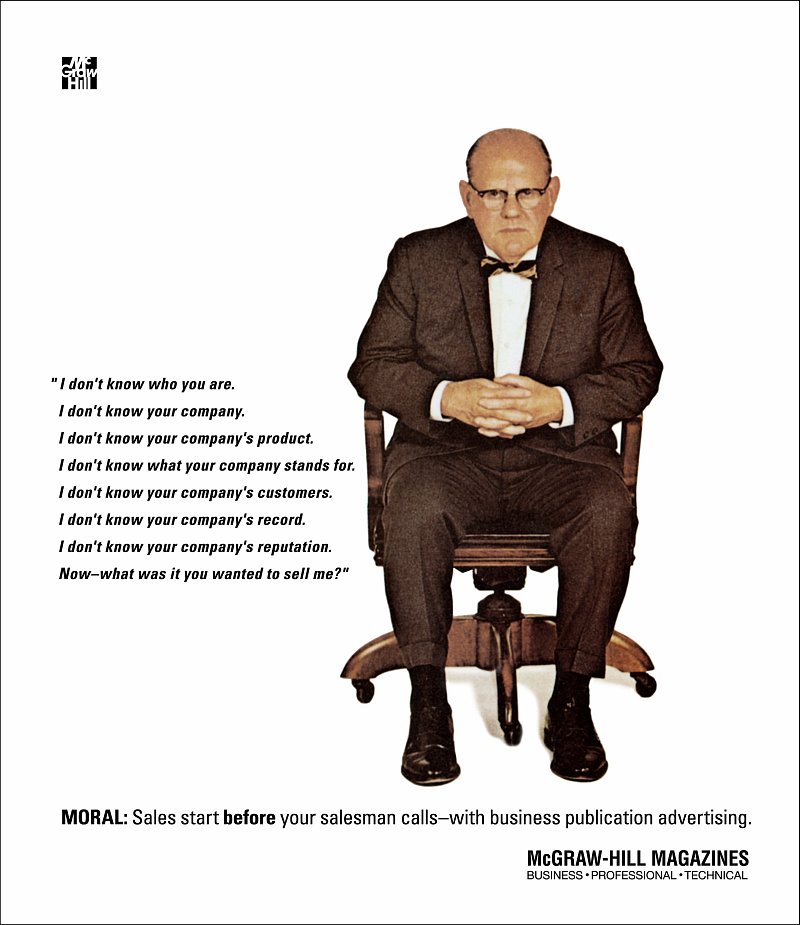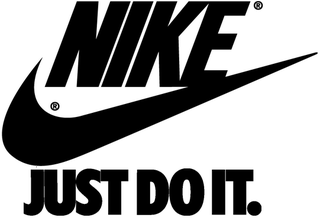I’ve been out of school for (mumble mumble) years but I still consider myself a student.

I’m constantly learning about marketing and new ways to engage prospective customers. The absolute best way to learn about marketing is to watch other people – your spouse, your kids, your friends – and pay attention when they react to an ad or a mailer or a referral. For instance, I watch my wife at night, when she’s sorting through the stack of mail, to see what she tears open and what she trashes without first opening it. I listen to my kids when they tell me about a cool new app or commercial they’ve seen. As long as I don’t influence them with my opinions coloring theirs, they teach me a lot.
The second best way to learn about marketing is to catch myself in the act of responding to someone else’s marketing efforts. I do it all the time.
Let’s say the mail has just arrived and I grab the newest magazines. As I sit at my desk, feet up, I occasionally find myself reading an ad without thinking – and then I stop for a second and wonder why. What caught my attention? What stopped me from turning the page? Was it a topic I was already interested in? Was it a surprising photo or clever headline? What exactly was the trigger? And then, did the ad actually make me interested in knowing more about its subject? Did it influence me to consider calling or clicking or writing down a note? All these are the questions I ask myself only after I have been caught up in the ad – not before, or the “data” is invalid.
The same goes for when I mindlessly watch TV and catch myself actually focused on a commercial. Usually, commercials are just background noise. But then, something occasionally pulls me in and when I notice that I’ve been hooked, I stop to analyze what just happened. OK, sure, I’m always attracted by a sexy model, but hardly ever enough to really listen to the sales pitch. Yet, every once in a while a commercial sinks in without my intentionally intending for it to do so. That’s when I go from being a viewer to being a student and thinking about it analytically. I make a mental note of what happened…what hooked me and what drew me in. On the occasions in which I actually find myself seeking out the product afterward, I again rewind to learn what made me react the way the advertiser wanted me to.
Often, the answer isn’t as simple as how effective the ad or commercial or website was. Often, it’s a combination of things, including some desire or disposition I had already brought to the party; perhaps having seen other ads or commercials for the same or similar thing before but now, I suddenly noticed it; something other people have said about the product or brand recently that gave the ad new context; some news or article or review I may have read about it; and most potently, an immediate need that was answered by the ad or commercial or web page.
Whatever the influencers, this I know: I wouldn’t have been moved to act, having just seen the ad, without having seen it to begin with. Woody Allen has said that 80 percent of success is just showing up! So you gotta show up. I also know that clever creative isn’t the end-all, but I more regularly notice ads, billboards, direct mail, radio spots and TV commercials that have some imagination and freshness – on top of a strong selling message, and I most typically ignore anything and everything that seems old or familiar. And I’ve learned, and continue to learn, so much more by paying attention to my own unintentional behaviors, as I learn by watching those around me.
I encourage you to be your own best marketing teacher in the same way. Every time you buy a new brand of paper towel, or call a new plumber, or visit a new doctor, or make an online purchase, stop, rewind and consider all the factors that drove you to that specific buying decision. Every time you inadvertently find yourself paying attention to an ad or commercial or recall a billboard you passed, stop, rewind and reflect on what was it that grabbed you and pulled you in. Once you’ve gone through the day’s mail, notice which unsolicited mail you didn’t throw out and critically think about why.
Then take what you’re learning and measure that against the marketing your firm is doing.
There are a ton of books on marketing and lots of marketing theory classes at the local colleges, but you can acquire a great deal of knowledge on your own by simply watching yourself and others around you reacting in the real world…just like your prospective customers do every day.
####
Rolf Gutknecht is vice president, director of account services for LA ads. To discuss your thoughts with Rolf on this blog or any marketing matters, email via this link, or visit www.LAadsMarketing.com. You can also connect with Rolf on LinkedIn.
Do prospects have a clue who your company really is?
 Over 55 years ago, specifically in 1958, a powerhouse publishing organization, McGraw-Hill, ran an ad in their magazines that became known as the “Man in the Chair” ad and you’ve probably come across it because it’s become iconic. The ad showed a stern faced, balding, middle-aged executive wearing a bowtie and a brown suit, sitting in an office chair, hands clasped together and looking intently at the reader as if the reader was a salesperson. To the left of his picture were a list of 7 very direct “I Don’t Know” assertions, followed by even more pointed question:
Over 55 years ago, specifically in 1958, a powerhouse publishing organization, McGraw-Hill, ran an ad in their magazines that became known as the “Man in the Chair” ad and you’ve probably come across it because it’s become iconic. The ad showed a stern faced, balding, middle-aged executive wearing a bowtie and a brown suit, sitting in an office chair, hands clasped together and looking intently at the reader as if the reader was a salesperson. To the left of his picture were a list of 7 very direct “I Don’t Know” assertions, followed by even more pointed question:
I don’t know who you are.
I don’t know your company.
I don’t know your company’s product.
I don’t know what your company stands for.
I don’t know your company’s customers.
I don’t know your company’s record.
I don’t know company’s reputation.
Now—what was it you wanted to sell me?
I think it would be safe to say that the importance of being able to addressed these questions are as important today as they were 1958. Crazy how things don’t change. These questions are timeless not just for B2B marketing, but all types of marketing and for all individuals responsible for communicating on behalf of their respective organizations. And one could probably argue that in today’s digital and social media world, it’s maybe even more powerful. (Click on the video at the bottom to see what I mean.) It remains a clear outline of fundamental sales and marketing questions every organization must be able to answer. How your people and marketing efforts address these seven “I don’t know’s” might very well determine if you get the new business…or not.
I don’t know who you are
When was the last time you made a major purchase without knowing anything about the company? Yeah, me too. Every sale requires a knowledge base or understanding with the brand or a person prior to a sales taking place. Now, however, salespeople spend less time on cold-calling, so that familiarity has to come from somewhere else. What is that “somewhere else” for your organization?
I don’t know your company
B2B buyer behavior has changed a lot… in even the past five years. The main change is that if a buyer needed to get information on a certain solution, they needed to go to the vendor. Now the buyer has lots of sources of information. In fact, the buyer probably doesn’t want to talk to the vendor because they’re the least credible source of information. So the buyer goes around and does all their research…without talking to a vendor as long as possible. Sales opportunities for a company may die depending on how easy it is for the buyer to find your info and say, “I’ve heard of you.” So the implication is that if you do any B2B marketing, you’re going to have to produce stuff or give them reasons to interact with you. And the only way you can do that is by producing really amazing, useful, relevant content that a prospect is happy to engage with, happy to consume and happy to share. How strong is your presence in the digital and social media space?
I don’t know your company’s product
Personal selling is still an important part of having people know something about you, but not in the way it used to be. Word-of-mouth was always important, and it’s ten times easier to get word-of-mouth advice today as a result of the all the online resources available. People want the information right away, and if it’s not available or where they think it should be, they’ll look somewhere else, and you won’t even know that they looked. Another prospective sale — which could have led to numerous repeat sales — goes to a competitor. Your making sure that product features and benefits are clearly known beforehand will be the difference between speaking to a prospect or not.
I don’t know what your company stands for
Whether you call it a USP or value proposition, without it, without a good one, you’re dead! If you can’t very quickly describe what makes you, your service or your company truly special in the eyes of the customer, don’t expect your customer to do it for you. By default, they’ll just put you on the shelf called “commodity,” and there you’ll stay. To have a lasting, profitable business with another business, building both brand awareness and credibility is job-one in B2B marketing. After all, it is much easier to open doors when the potential customer inside knows who you are, what you’re about and why you might be a better alternative than the next guy who knocks on the door.
I don’t know your company’s customers
In the past, referrals were personal, or references were checked personally. A Google search can find referrals quickly, especially the ones than you’d prefer not be found. In today’s world, the majority of prospective customers, both B2B and B2C, spend time researching online or through social media before they buy. They depend more than ever on word-of-mouth references from people who have used those brands or products – whether those references are in the form of anonymous reviews or client testimonials. Think Angie’s List, Buzzillions or Yelp. In fact, according to a the marketing group, ODM, about 90% of consumers trust the word of people they know and 70% of consumers trust the word of people they don’t know. Just look at how we shop online: one of the first things we do is check the customer rating number on the product. And then we typically read the actual customer reviews to see why someone gave that product 1 star and why others gave the same product 5.
I don’t know your company’s record
Letting prospects know your company’s track record is easier today than it used to be. There are channels upon channels – from your website to social media to e-newsletters and email blasts to press releases – that can be used to ensure that the message is delivered in a consistent manner. Buyers want to have some comfort in knowing that you’re a company with a record of achievement and innovation, a company that has won awards for products or service or operation, an organization that’s been around for a while, one who isn’t caught up in multiple lawsuits, etc.
I Don’t Know Your Company’s Reputation.
We’re talking about your company’s standing…status…character. Things that boil down to “can they trust you?” Will people find out that you do what you say you’ll do? Act with integrity? Do you come across as thought leaders in the industry? Is the company aligned with other organizations that have good reputations? You get the idea. Buyers cast verdicts on reputation with their pocketbooks, withholding business from companies they believe are ethically deficient and rewarding those with good reputations. And, it doesn’t take long for judgments to spread. Will prospects see a company that values its customers or a company that people have no problem calling out in social media?
Now, What Was It You Wanted To Sell Me?
The original “Man in the Chair” ad was published long before Twitter, blogs, discussion boards, web 2.0, etc. We’re in a new era. We’re all learning new ways to connect with prospects. But as things look like they have changed in the ways that we engage, inform and become known to our markets, the basic message behind the ad is just as relevant today as it ever was. Being visible to our prospects and winning credibility in word and deed is still critical. Today it takes new ways of thinking and new ways of engaging in our markets and conversations as well as reframing some of the old ways that we went about it before.
As we know, sales start before a salesperson makes contact. Times change, markets change, technologies and approaches change…but marketing fundamentals and human nature don’t. What would be said if the next sales conversation your company had, over the phone or even in person, was with the “the man in the chair?”
Click on the video and see a comparison of the original “Man in the Chair” with how that would play out in a modernized version for today’s world.
[youtube https://www.youtube.com/watch?v=9Y3DDqmGizc]
####
Rolf Gutknecht is vice president, director of account services for LA ads. To discuss your thoughts with Rolf on this blog or any marketing matters, email via this link, or visit www.LAadsMarketing.com. You can also connect with Rolf on LinkedIn.
Last week, we got a copy of a readership survey related to a trade ad we ran for a client. In the survey, the ad was among the top-ranked when it came to the most seen, most remembered and most read. But what was absolutely fascinating was how widely the readers’ reactions varied when asked their impressions of the ad. Their verbatim responses ranged from “Tacky” to “Perfect 10/10.” One reader commented “Poor taste, undignified, a true turn-off.” Another reader said “I clipped it out and it is on my refrigerator now. The whole idea of standing out in a crowd is extremely important to me if your business wants to be noticed.” Several said they were “shocked at first” but then got the message and completely agreed with the point.

In fact, I’ll say nearly 25% generally disapproved of the ad and maybe another 5% very strongly disliked it. On the other hand, the number of respondents who liked the ad and got its message was exceedingly high. And the turnout was successful.
What’s my point? Well I have three points to be precise.
The first is, we begin by acknowledging that we’re not right for everybody. In fact, we believe that as a marketing agency, we’re probably right for just a few percent of business operators, those who are strongly marketing-oriented and know that traditional advertising doesn’t get the attention of a disinterested public. The ad, therefore, is self-qualifying and will provoke a certain number of negative responses. That’s just fine, since again, we’re not right for everybody. Neither should you try to be all things to all people. Those that attempt such alchemy are doomed to blend in with all their competitors. Be different and proud of it. Not everybody is a Mac user. Not everybody likes Starbucks coffee. These hugely successful companies know who their market is and they don’t try to please everybody.
My second point is, it’s so damned tempting to knee-jerk to negative responses. One of my favorite quotes is “Everybody likes it until somebody doesn’t,” meaning the one or two negative voices often seem to drown out all the positive voices. It’s human nature to want universal approval. But it’s smart marketing to realize that no matter how hard you try, there will always – ALWAYS – be dissenters and not to let that veer you off course. (Just because someone doesn’t like it doesn’t mean they’re right or speak for the majority.) I’ve had clients who chose to kill a good campaign because they got a couple of negative calls and missed the tidal wave of silent support. People seldom call in to express their acclaim about an ad they like; they voice it at the sales counter. The trick is to start by knowing who you are and who you’re most right for (going back to my previous point), and reconcile that against the overall trend in audience feedback.
My third point is that when you commit to being really visible, you are choosing to declare your difference and necessarily you are stepping out on a limb. Strong, memorable, provocative advertising is risky stuff, not for the meek or conservative. One has to be willing to suffer a few arrows. Even to fall off that limb once in a while. But in a society that’s over-saturated with commercial messages, you have to stand apart to be noticed – that is unless your budget allows brute force bombardment. We don’t have that kind of money. Do you?
We’re very happy to have clients who like our unique direction, and must be satisfied that most of the industry is more conservative in approach than we are. Hey, Jaguar has to live with the fact that more people choose Hondas.
The fact that you’re reading our blogs, and have read this far in today’s post demonstrates that you’re within the segment who has the opportunity and vision to succeed against your more conservative competitors.
You just can’t do it with thin skin.
####
Rolf Gutknecht is vice president, director of account services for LA ads. To discuss your thoughts with Rolf on this blog or any marketing matters, email via this link, or visit www.LAadsMarketing.com. You can also connect with Rolf on LinkedIn.
 It’s one of the more iconic moments in film over the last three decades. Robert De Niro plays taxi driver Travis Bickle, who in one chilling scene looks at himself in the mirror, a pistol up his sleeve, and says to an imaginary adversary, “Are you talkin’ to me? You talkin’ to me?”
It’s one of the more iconic moments in film over the last three decades. Robert De Niro plays taxi driver Travis Bickle, who in one chilling scene looks at himself in the mirror, a pistol up his sleeve, and says to an imaginary adversary, “Are you talkin’ to me? You talkin’ to me?”
What’s this have to do with marketing? Well, as consumers we’re actually all asking this question whether we think about it or not. Because the only marketing that breaks through the clutter is that in which the message undeniably speaks directly to the reader/viewer/listener/user from his or her own perspective. The reader/viewer/listener/user knows for certain, “You’re talkin’ to me!”
Here’s what I mean:
Recently, we saw an ad for mortgage company with a photo of a man dressed in a business suit leaning backwards like an acrobat. The headline said “Can your mortgage broker do this?” On the surface, you might say that’s a humorous, attention-getting ad. But really, it’s just showing a visual pun without telling any compelling story about what flexibility means to the reader. It’s just saying so and nothing more. Compare that to another mortgage company’s ad that showed one of those toy labyrinths where the steel ball might drop through one of a dozen holes in the maze at any turn, and the headline says “We know just how you feel about refinancing your house.” The first ad speaks from the company’s point of view, the second speaks from the reader’s. There’s no question that in the second ad, the reader knows “You’re talkin’ to me!”
If you want your audience to connect with your message, it has to be based on their real experiences and what’s in it for them, instead of all the features you have to offer.
It’s ridiculous that I have to say this but the memo has not reached the desk of many marketers, so here goes: “It’s not about what your company wants to say but rather about what the customer wants to hear.” (I feel better having said it.) Look, if you want to market based on your personal preferences without regard for what works best with your prospects, that’s your prerogative. But I’d suggest that your company’s marketing not be so self-absorbed. Remember, you don’t buy from you, others buy from you and they don’t care about your business and your troubles nearly as much as you do. Most people are tuned into Radio Station W.I.I.F.M. —“What’s In It For Me!” If your marketing message is all about you, then your customers won’t notice what you’re saying. Please begin to “tune” into your customers, find out what they really want and focus your message on them.
We recently conducted a webinar about exhibiting at a major trade show that one of our client’s exhibits at. It’s tragic how many booths fail to attract traffic simply because they don’t design their exhibits from the audience’s perspective. They’re loaded with too much feature-based content and lack a simple benefits-oriented message. No one passing by would stop and say “You’re talking to me!”
A shift in perspective from speaking about yourself to speaking from the audience’s point of view can be remarkably effective. Witness a beautiful commercial for a British online content company featuring a blind man whose original cardboard sign talks about himself,
“I’m blind. Please help.” But when a caring passer-by changes the words to be more audience-focused, something powerful happens. [youtube https://www.youtube.com/watch?v=Bq3Dgy3Wx_0&w=560&h=315] As marketers, the symbolism of what you or your firm can offer the organization, is front and center.
No matter what you sell, manufacture or service, it’s critical that you change your marketing message’s perspective from talking at your audience to talking to them, causing them subconsciously to acknowledge, yes, “You’re talkin’ to me!”
####
Rolf Gutknecht is vice president, director of account services for LA ads. To discuss your thoughts with Rolf on this blog or any marketing matters, email via this link, or visit www.LAadsMarketing.com. You can also connect with Rolf on LinkedIn.
 Oh, the wonder of beautifully crafted taglines. Those few strategically selected words that sum up everything your business stands for and what you want your target audience to know about you. They’ve made companies fortunes by telling people what makes them stand out in the sea of sameness. Consider FedEx’s brilliant “When it absolutely, positively has to be there overnight.” Nine simple words that tell FedEx buyers precisely what they’re going to get, while simultaneously informing all of its employees what their mission is. What if FedEx’s slogan was “We ship things!”? Would Nike be as successful if it allowed an executive committee to red-pencil “Just do it” into “When you need great shoes?” How would BMW’s vision change if “The Ultimate Driving Machine” became “Our cars are fun to drive!” My point is that these companies didn’t settle for weak platitudes or vague, generalized statements that could have applied to their competitors. Nope, they decided that they weren’t going to settle. Instead standing out and differentiating themselves was business-critical. Can the same be said for your company and its marketing? Do you have a themeline or slogan that makes you stand out? Is it unique and memorable? Or is it mediocre because somewhere down the line, people settled?
Oh, the wonder of beautifully crafted taglines. Those few strategically selected words that sum up everything your business stands for and what you want your target audience to know about you. They’ve made companies fortunes by telling people what makes them stand out in the sea of sameness. Consider FedEx’s brilliant “When it absolutely, positively has to be there overnight.” Nine simple words that tell FedEx buyers precisely what they’re going to get, while simultaneously informing all of its employees what their mission is. What if FedEx’s slogan was “We ship things!”? Would Nike be as successful if it allowed an executive committee to red-pencil “Just do it” into “When you need great shoes?” How would BMW’s vision change if “The Ultimate Driving Machine” became “Our cars are fun to drive!” My point is that these companies didn’t settle for weak platitudes or vague, generalized statements that could have applied to their competitors. Nope, they decided that they weren’t going to settle. Instead standing out and differentiating themselves was business-critical. Can the same be said for your company and its marketing? Do you have a themeline or slogan that makes you stand out? Is it unique and memorable? Or is it mediocre because somewhere down the line, people settled?
Imagine you owned a small piece of your buyers’ brains. And every time they thought about making a purchase where your product or service could be considered as an option, the brand or company name came to mind. For example if they were thirsty, they thought, “This Buds for you, “ or if they wanted a burger they thought, “Have it your way!” or if they when were tired and looking for a lodging for the night they remembered “We’ll leave the light on for ya!” That’s what the marketing slogans from Budweiser, Burger King and Motel 6 do, they help people remember a product and increase their propensity to buy. And that’s what a good marketing slogan can do for you. Unlike your company tagline or marketing message, your marketing slogan may change regularly or you may have more than one. For example American Express has: “Membership has its privileges.” And “ Don’t leave home without it.”
The taglines that work the hardest are not puns or rhymes, but ones that present many layers of meaning, where one layer can speak to the product while another speaks to value or even a brand a brand belief. It can manifest itself in any number of ways…online or offline. In ads and as a social media hashtag. On promotional products and product packaging. Most everywhere.
So what does a good tagline do? At its best, a good tagline conveys a singular value, loud and clear, on what a brand stands for. Remember, powerful words are powerful things. It also connects across all generations, geographies and markets, and becomes relevant for the consumer in his or her own personal way. And the right tagline doesn’t work for competitors because it’s only unique to your brand/company. Unfortunately, far, far, far too many taglines are generic and meaningless. In this time of technology disruption and increasing competition, clear positioning is valuable. Problems occur when the company and its messaging doesn’t have a focus, or the tagline could apply just as easily to other companies. In the marketplace, taglines are used to quickly communicate company differentiation. That said, taglines aren’t developed for customers alone. They’re also important for internal audiences as they can align an organization around a common cause and vision.
With that in mind, there are plenty of taglines out there that don’t work because they fail to connect. They’re easily overlooked, dismissed as “every day,” they lack originality or even mistaken for another brand. This usually happens when one of these mistakes happens:
Alternatively, good taglines have a number of hard-working qualities to them. They’re:
The process of developing a fresh, original and imaginative tagline is no easy task. From competitive research and brainstorming to paring down the list of options to more brainstorming, the process can take more time than you think …not to mention the back-and-forth given the stakeholders who are involved. And even then, the tagline may not be “all that.” That said, here’s how powerful a tagline can be – after 50+ years! Avis Rent-A-Car built its business with “We Try Harder” (which they finally put out to pasture just a few years ago). How the phrase came to be sounds like something out of Mad Men. The tagline was created in 1962 and actually came about in the response that Bill Bernbach, the co-founder of DDB, received from company management when asking why anyone ever rents a car from them. “We try harder” was the answer. Within a year, Avis turned a profit for the first time in over a decade and the rest is history.
####
Rolf Gutknecht is vice president, director of account services for LA ads. To discuss your thoughts with Rolf on this blog or any marketing matters, email via this link, or visit www.LAadsMarketing.com. You can also connect with Rolf on LinkedIn.
 A couple of weeks ago, I was at a trade show and after walking up and down the aisles, it occurred to me just how much of the same-old, same-old I was seeing. Nothing really new (unless you consider irrelevant modifications like changing the color from blue to orange and different shaped bottles as new). There was nothing that I can say showed me that companies were spending any amount of time and energy in looking at the marketplace with an eye toward identifying the opportunities that trends in customer purchasing or behavior would present.
A couple of weeks ago, I was at a trade show and after walking up and down the aisles, it occurred to me just how much of the same-old, same-old I was seeing. Nothing really new (unless you consider irrelevant modifications like changing the color from blue to orange and different shaped bottles as new). There was nothing that I can say showed me that companies were spending any amount of time and energy in looking at the marketplace with an eye toward identifying the opportunities that trends in customer purchasing or behavior would present.
With that as that backdrop, on my flight home I started thinking about the ways that the marketing department within an organization can start the process of getting out in front of their competitors in order to seize on untapped business opportunities and identify trends before their competitors do. It’s really not as difficult as a lot of people think, but it does require that one to think more about the future by asking questions around the idea of “so what does that mean?” As an example of this, watch the video clip that stars Kevin Spacey for E*Trade.
In short, imagine if you could get a 12-18 month head-start on everyone else in your industry. Wouldn’t even 6 months be nice? Wouldn’t that make a huge difference in how your business runs? Maybe you could get the jump on your competitors every single time you make a move. Heck, this would even apply not only to products and services but also to channels, processes and even personnel hires.
Before we get into the ways that one might start spotting new trends, it’s important to understand a few things. So here goes:
OK, with that as the backdrop to trend watching, let’s walk through the process of how and where to find possible trends:
Now that you’ve identified some trends, where do you go from there? First, think about the consequences if a trend continues to spread. How will the trend change what people buy? What will happen if the trend grows in strength? Here’s where you have to ask yourself a lot of questions about “what does that mean?” In short, imagine the future (and your future) if the trend plays out. After you have in your head what the trend might look like, identify what need is currently being unmet that, if created, will help customers take advantage of the future scenario. And then lastly, define what the product or service opportunity is— that being the space between what is currently available and what people who would be effected by the future trends will want.
Here’s the choice you have: As a company, you can sit around and talk about strategies year after year. You can even hire consultancy firms to tell you what’s hot…last year. You can scratch your heads at all that new stuff that you’re seeing but end up sticking to known quantity. Or, you could wrap your mind around the potential that a new product or service has to offer. You create your own crystal ball!
Maybe the people who are good in spotting trends and anticipating what people want are able to imagine what others can’t. These trend spotters collect relevant data from what they read and hear and can read between the lines. Hopefully you’re one of those people.
Just remember, the sooner you spot an opportunity, the more time you have to leverage the tar out of it. And the faster you can move on an opportunity, the more likely it is that you will score a win. Keep your eyes open.
####
Rolf Gutknecht is vice president, director of account services for LA ads. To discuss your thoughts with Rolf on this blog or any marketing matters, email via this link, or visit www.LAadsMarketing.com. You can also connect with Rolf on LinkedIn.
 Most every time I listen to a radio spot in my car, see a TV spot on cable or fan through the pages of a magazine (trade or consumer), I find myself wincing. Ad after ad tells the same sad story: money spent leading to no results. In fact, I’d venture to say that better than 85% – 90% of the ads lay the same leaden egg. Oh, the humanity!
Most every time I listen to a radio spot in my car, see a TV spot on cable or fan through the pages of a magazine (trade or consumer), I find myself wincing. Ad after ad tells the same sad story: money spent leading to no results. In fact, I’d venture to say that better than 85% – 90% of the ads lay the same leaden egg. Oh, the humanity!
If you’re questioning whether your advertising is doing what you paid it to do, odds are it’s not. And although there are master classes you might take in advertising creativity, marketing strategy and media planning, it’s very likely the problem falls within four main areas. Checking off each point, you can estimate your ad’s effectiveness even before you place it. I mean it.
Here then are the four fundamental concepts that can make a meaningful difference in how successful your next advertising effort is.
1) Have a something compelling to say. And by that, I mean not just compelling to you and your staff, but to a completely disinterested audience. If you’ve followed my posts for any length of time, you know that I frequently observe that people don’t like advertising, and completely ignore the boring or hard-to-figure-out kind. So whatever you have to say must go the distance to alter their indifference. Don’t just tell your audience you’re “a leader in the industry” or that you’ve been around for three generations. They’ve heard that so many times before from you and your competitors that it means nothing to them. Instead tell them something they don’t know, something that might even surprise them. You can tell when someone’s ad is truly compelling when you think, “Gee, I didn’t know that!” We sometimes call that a “sticky” message, one that has staying power after the reader has turned the page or flipped the channel.
2) Sell, don’t just tell. One of the most egregious mistakes advertisers make is simply laying out all the features of their product or service and expect the audience to figure out why that’s important to them. Often that’s done in the form of five or seven bullet points, such as:
or in Business-to-Business ads (snatched from the pages of a recent trade pub):
Yikes! There’s no emotion in that. There’s no selling. There’s no story or connection. Instead of praying that maybe one or two bullets might hit home with some member of the audience – or worse, trying to be all things to all people – why not focus on one point at a time and spell out why that point really matters. People don’t buy bullets. They don’t buy features. But they do buy benefits and ideas that add value to their lives. Always be thinking, from their point of view, “what’s in it for me?”
3) Be your own brand and not a clone of others. All too often, within any given industry, I see ads in which the logos and contact information are interchangeable, one company’s with another’s. None stand out, all look alike, and thus all the players are perceived as a commodity. Here’s a question for you: If your logo was blocked out of your ad or commercial, would the audience still know it’s yours? Take, for instance, Jack-In-The-Box. Their commercials are radically different from McDonalds’. BMW’s ads are unmistakably theirs and not Mercedes’. It’s a matter of message but also a matter of style, personality and consistency. The more striking and distinctive your ads are, the stronger competitive impact they’ll make, while your competitions’ ads could be just anybody’s. Dare to be Different!
4) Tell the same story across all your platforms. With all the buzz about Social Media, it strikes me as odd that most business Facebook pages and outbound Tweets have little in common with their owners’ main marketing messages. In part that’s because the marketing messages themselves aren’t that well-defined. But it’s also because the marketers don’t appreciate the importance of speaking with the same voice at any touchpoint. Good marketing is a collective enterprise and an erosive processes. For instance, if your main story is about how your company has been around for over 100 years, use your Facebook pages to talk about the early days of your firm, the companies you’ve served, etc. Make sure your phone hold-message tells the same story. Make sure you hold special events or promotions that support the theme. If you don’t keep hammering away at the same selling proposition at every touchpoint, then each effort conflicts with every other.
While hardly a full compendium of marketing knowledge, if you make the effort to assure your advertising and marketing is consistent with these four points, you’ll be far out in front of 85% of your competition. And that’s the goal, to create ads your customers will react to and that your competition will hate.
####
Rolf Gutknecht is vice president, director of account services for LA ads. To discuss your thoughts with Rolf on this blog or any marketing matters, email via this link, or visit www.LAadsMarketing.com. You can also connect with Rolf on LinkedIn.
 “What do you mean they’re no longer a client? Are you kidding me? When did that happen? Why did they leave? I can’t believe it!” Have you heard (or said) these words in the past few months or so?
“What do you mean they’re no longer a client? Are you kidding me? When did that happen? Why did they leave? I can’t believe it!” Have you heard (or said) these words in the past few months or so?
Well, as we all know, clients come and clients go but the sad part about it is that more times than not it’s because we’ve lost track of them or taken them for granted.
Which brings me to the question that begs to be asked: “Why do customers leave?” Curiously, most business owners and managers have the exact wrong idea about why customers leave. Most people believe that customers leave because:
(Drum roll please)…Wrong!
According to an in-depth study by the research firm CRMGuru, the reasons customers give for taking their “business down the road” are:
As you can see, when it comes to keeping your existing customers, customer service is three times more important than price–and five times more important than functionality. Which obviously means that if you want to keep the customers you’ve got, you should think about reversing priorities and pay more attention to customer service and quality – and, consequently, less attention to functionality and price. I fully realize that this runs contrary to 90% of what most people think is important, probably because price and functionality can play a large role in new customer acquisition.
Yet, many marketing plans are so focused on customer acquisition that they largely ignore customer retention. Even a tiny change in customer retention can have a large effect on long-term profitability and growth. This shouldn’t be underestimated. The easiest way to grow your customers is not to lose them. In fact, I recently read that 96 percent of dissatisfied customers don’t complain. They just take their business to one of your competitors, and the unfortunate thing is that you’ll never know why. And what’s worse, while they may not tell you what’s wrong, they will certainly tell plenty of others!
Want to get an edge over your competitors? With a little attention, your business can be one of those which can negate customer churn and improve profitability. Here’s a list of the five strategies (only limited by space) you can use to improve customer retention.
Keep them on your radar screen
So many companies do an excellent job of making the initial sale, then start chasing other prospects and in the process forget about their current customer…ignore may be the case as well…or they just get complacent. Gaining a new customer only begins when someone makes that initial purchase decision because there’s this thing called “buyer’s remorse.” To make sure that future referrals and repeat business materialize from this customer, it’s important to make sure that your customers’ fears are put to rest, and that you demonstrate by your actions that you really care and that they’ve made the right decision to deal with you. This can be accomplished by putting a plan in place to communicate with them, and sell to them again and again, constantly proving that your company was the right choice.
Build engaging relationships
With CRM programs all the rage, coupled with Big Data and predictive analytics providing marketers with in depth customer insights, the key to engagement is through personalization. In fact, as consumers ourselves, we expect and demand that companies personalize messaging and offers so they’re relevant to our wants and needs. You can do this by providing clients with offers that are personalized to them. Send them offers and information/content that they’ll like at the right time based on when they might need the product. Do some A/B testing in order to see what catches the attention of your customers. And, even recommend products to them. Offers, timing and product recommendations all show that you know and care about your clients.
Share useful content/information
Customers buy from people. They buy based on trust. Building trust with new customers is the key to getting them to buy in the first place. And maintaining and strengthening that trust is the key to keeping your customer over the long term, improving customer retention. In today’s marketplace, it’s not enough to have a wonderful product or service, you also have to help educate your customers on how they can use your product or service better. Content must abide by three criteria: it must be expected, valuable and relevant.
Give Back
Going back to your own personal experience for a minute, what is your impression of a company that, out-of-blue, gives you something you could use….for no cost. Not as an incentive or ulterior motive to purchase or do something else, but rather “just because.” It probably left you feeling good about the company, maybe even made you happy. Using the element of surprise to your advantage is a good thing because people naturally remember when something surprised them in a good way. You see, winning customers over starts with winning their thanks on individual terms. And while technology allows you to offer up this surprise to whatever scale you want, the fact is people remember acts of kindness when it feels personal.
Provide Exemplary Customer Service
When it comes to retaining customers, nothing’s more important than hands-on customer service. So let’s address a few different ways that customer service plays itself out. Critical to this is making sure that interactions that you have with the customer are quality interactions. Think about it: when you’re the customer, you expect the company that you’re dealing with to be courteous, willing and helpful, right? Also, make sure you’re dealing in the communications mode that your customer prefers. Although the majority of people prefer email, some like receiving calls or connections through social media channels. On that note, being proactive, or anticipating what the customer might need or addressing problems before they happen is always better than the alternative. This could be as simple as calling and asking if everything is OK before the client calls you to say something is not. Or letting them know that the product they recently bought is being redesigned and will look different or is going to be sold in bulk versus single-product purchases. And lastly, there’s nothing like hearing from the customers themselves. Some sort of a feedback system, such as a survey or speaking directly with your loyal customers, shows them that you really care about their recent experience with your company and will help identify any issues to address.
Regardless of what you’re selling, your long-term profitability is largely dependent upon your ability to keep current customers, compared to acquiring new ones. While you must always try things to attract new customers to your business, don’t take for granted those who are already in your camp and are supporting your business. Don’t forget, every now and then, to “dance with dem dat brung ya.”
####
Rolf Gutknecht is vice president, director of account services for LA ads. To discuss your thoughts with Rolf on this blog or any marketing matters, email via this link, or visit www.LAadsMarketing.com. You can also connect with Rolf on LinkedIn.
 I think we can pretty much all agree that most everyone, be it on the job or in our personal lives, is stretched thin on time. And this crunch for time has shortened our attention spans and concentration levels to the point that we’re lucky if we even remember some bits and pieces of phone conversations, face-to-face discussions, emails, etc., let alone those marketing messages that other companies put out in the marketplace in hopes we’ll act on them. Who has time for them?
I think we can pretty much all agree that most everyone, be it on the job or in our personal lives, is stretched thin on time. And this crunch for time has shortened our attention spans and concentration levels to the point that we’re lucky if we even remember some bits and pieces of phone conversations, face-to-face discussions, emails, etc., let alone those marketing messages that other companies put out in the marketplace in hopes we’ll act on them. Who has time for them?
With that scenario playing itself out in most everyone’s lives, marketers have a hard nut to crack when it comes to creating marketing messaging that sticks in order to counterbalance people’s shrinking attention span. Every marketer faces this reality daily. As most of us have heard, the average attention span does not exceed eight seconds (ten years ago it was 12 seconds). Comparatively, the attention span of the average goldfish is nine seconds. Capturing attention within eight seconds is a formidable challenge. As marketers, we have enough trouble with summarizing a message into a small packaging label, a web banner, a half page magazine ad, an outdoor board, or other media channels where the time or space allows for only something along the lines of a “quick bite.” Remember when the 60-second TV commercial was the norm? Then it went to 30 seconds and now we’re seeing more and more 15’s. And Vine built a platform around 6-second video posts and YouTube incorporated a “skip ad” option on their commercial videos after five seconds. Any more than that, and viewers lose interest and get really ticked off .
Oh, and let’s not forget about how the shrinking attention span has also led to people fidgeting between multiple screens (their TVs, computers, smartphones and tablets) at a rate of up to 21 times per hour, according to a recent study. Guess the average minutes a day that a person spends on their smartphone? 147 minutes. Now compare that to just under 120 minutes per day watching TV. Boy, we are distracted!
Growing evidence blames Internet, TV and computer games for creating shorter attention spans. Bombarded daily with mind-boggling amounts of things to read, watch and respond to, most of us have real difficulty paying attention on one subject for longer than a couple of seconds. How to fight against this rapidly decreasing attention span of an average consumer? How do you market to a group of people who don’t have enough time to listen to everything you have to say? It’s hard, and it’s getting harder to get and keep anyone’s attention.
Well, some marketers are trying to get people’s attention by going where more people seem to be…on social media, the “Land Of A Million Tweets, Comments And Posts” that repopulates itself every few days, or hours…or even minutes. And then there’s special offers, sales, email blasts and just about anything else that has a slight chance of possibly working. In doing so, I’d argue that for many companies, they’re not breaking through the clutter but instead adding to it.
It’s more important than ever to hold the attention of customers and prospects quickly and interactively in ways that weren’t possible or necessary in years past. So here are 5 messaging tips that will go a long way to having your audience stay tuned rather than drift away:
Now, at a time when attention spans are shorter and less focused than ever, you need to be more focused on making sure your marketing messaging doesn’t fall on deaf ears. There is too much noise because too many people want to be noticed without having to say anything worth hearing. The genuine voice sounds different and therefore it can be more easily discerned. The problem is, because of so much noise, people are hardly listening any more – expecting to hear nothing of worth anyway. Make every effort to be the voice that gets heard.
####
Rolf Gutknecht is vice president, director of account services for LA ads. To discuss your thoughts with Rolf on this blog or any marketing matters, email via this link, or visit www.LAadsMarketing.com. You can also connect with Rolf on LinkedIn.
 As a marketing firm that’s always looking to engage in new business relationships with interesting companies, we continue to have more than our share of new business meetings. These companies run the gamut from small to “you’ve heard of this company before” and while they’re sometimes far removed from one another in terms of sales and recognition, a surprising number of times there’s not that much of a difference in their approach to their marketing initiatives which, as my business partner puts it, “borders on marketing malpractice.”
As a marketing firm that’s always looking to engage in new business relationships with interesting companies, we continue to have more than our share of new business meetings. These companies run the gamut from small to “you’ve heard of this company before” and while they’re sometimes far removed from one another in terms of sales and recognition, a surprising number of times there’s not that much of a difference in their approach to their marketing initiatives which, as my business partner puts it, “borders on marketing malpractice.”
How am I defining “marketing malpractice?” Well, while it might take form in a few different ways, it’s primarily about a breach of duty that does harm when another course of action, as performed by a reasonable person, should have been taken. In short, it’s about negligence. While malpractice is commonly associated with the medical, financial and legal world, it could also be readily applied to the marketing world as well.
With that in mind, let’s look at 5 ways that companies and marketing leaders could become guilty of marketing malpractice:
Not having a full grasp of the marketplace
Too many companies assume that there is absolutely no need to substantiate their beliefs about the marketplace, about what their prospects want, about why their customers are buying, about what people think of their brand, about most anything having to do with those whom they want to purchase their products or services. Generally the thinking is that no one can know the marketplace as well as the company and the market will accept whatever you offer. Are you pretty darn confident on how your specific industry is changing and what is needed to get out in front of the competition? Understanding the marketplace as a whole will create the opportunities that bring with it the sales, visibility, prominence, trust, etc., that you might be looking for. And you get there by doing some research…the right way.
A lack of focus
The “We have to be here, there and everywhere” thinking is a sure way to squander the limited budget that you have. And who said that you need to be all over social media platforms like LinkedIn, YouTube, Facebook, Twitter, Google+, and Pinterest? Heck, you’ve got your product literature online, and your Web site has a blog and videos. Not to mention all the offline activities ranging from tradeshow activities to advertising to PR, etc. Why did you believe you need to be in ALL of these media locations in the first place, and, just as importantly, who is making sure that all of these activities work together?
Inconsistency or mixing of marketing messaging
When different aspects of your marketing messages don’t reinforce each other, the inconsistencies alienate prospects and current customers. Inconsistent marketing distorts clear expectations, makes potential customers unsure of the characteristics of your products and creates unhappy customers who don’t get what they expect. These inconsistencies affect businesses by reducing both initial sales to consumers as well as repeat sales from dissatisfied customers. Throwing stuff up against the wall to see what sticks is a clear path to wasting resources and confusing people/organizations that you want as customers.
Being just like the other guy
How many times have you read or seen something from one company that looked just like what one of their competitors has or is currently saying? For an example, go online and look at professional services firms and tell me why one is different from the other. The fact is that there is no relevancy to what you’re saying if you just keep repeating what others have said already. Your company/products/services only has value if you’re different and if you can find a way that you can take who you are, what you make, and what you offer and create a relationship with prospects and current customers that is instantly captivating. Striving for differentiation rather than being a “me-too” allows for the organization to seize on new sales-producing and revenue-generating opportunities. Otherwise, you’re just a lazy copycat…two words that don’t leave the minds of the customers and competitors anytime soon.
Confusing strategy with tactics
Maybe, just maybe, the most common marketing malpractice occurrence is not having one over-arching marketing strategy – and ensuring its implementation through all your tactics. Executing marketing tactics without having a well-developed integrated strategy is a recipe for disaster. It’s easy to start with the “how” but if you haven’t identified the “what,” you may find yourself spending a lot of time executing tactics that don’t take you where you want to go and in so doing, you’ll be wasting time, resources and losing out on sales-producing opportunities. What is needed is one single integrated strategy that looks across all delivery platforms whether online or offline, print, broadcast, or mobile. Your customers don’t have an online self and offline self and neither should you. Think holistically about all your marketing initiatives.
At the end of the day, both the short-term and quite possibly the long-term prospects of the company could be affected as a result of marketing malpractice. Whether done because one doesn’t know better or because of expediency, it happens and the organization will have to live with the results. So, while you won’t be brought into court (unless you did something very egregious), one question that a marketer has to ask oneself and answer honestly, is: “Have I breached my duty as the marketing leader for the organization so much so that it has caused harm to both short and long term sales, visibility, prominence, market share, and trust for the company?” Hopefully, the answer today and in the future will remain a resounding NO.
####
Rolf Gutknecht is vice president, director of account services for LA ads. To discuss your thoughts with Rolf on this blog or any marketing matters, email via this link, or visit www.LAadsMarketing.com. You can also connect with Rolf on LinkedIn.